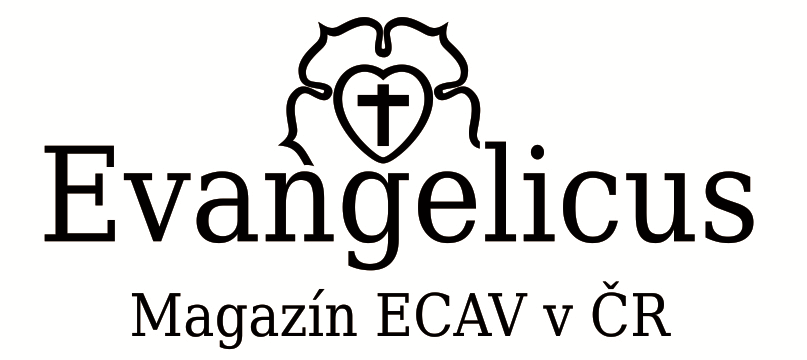Dear brothers and sisters, apostle Paul could have been rather small figured and his speech not skillful, but these words written by him to the church in Rome are the sharp sword of the Word of God. On one hand, Paul sharply and decisively reminds us of our sin and does not water down the devastating consequences of living in sin. On the other hand, Paul brings to the Christians in Rome the beautiful, sweet and intimate words of the Gospel that gives comfort, hope and acceptance. As usual with Paul, our text today is only 5 short sentences, […]
Autor: Editor
Dear brothers and sisters, “Blessed is everyone who will eat bread in the kingdom of God.” What does this exclamation mean? How are we to understand this statement? Blessed, in the light of the Lord´s Sermon on the Mount, refers to “provided for” or “saved”. The one, who is provided for or saved, is in the kingdom of God. Splendid! We expect something like this. But now comes a thing that is a surprise or can be an offense to us, modern people. To eat brad?! First of all, we, modern people who tend to be so “spiritual” and “self-standing” or so […]
Dear brothers and sisters, if you live in the U.S., you could ask your great-great-father: “Do you remember what you were doing when President Lincoln died?” or you could ask your father: “Do you remember what you were doing when President Kennedy got shot?” Or, if you are Czech, you could ask your great-great-father: “How was it when President Masaryk died?” or you can ask any of the adult Czechs now: “Where were you when President Havel died?” By the names, we can know where we are in the historical time. The same in our Old Testament text with […]
Milost vám a pokoj od Boha, našeho Otce, a od Pána Ježíše Krista, který sebe samého vydal za naše hříchy, aby nás podle Boží vůle, vytrhl z tohoto zlého věku. Jemu sláva na věky věků. Amen. Drazí bratři a drahé sestry v Kristu Ježíši, milí Kristovi přátelé! Text Písma svatého, který je základem našeho společného uvažování nalézáme v Janově evangeliu, kapitola 3., verše 1. – 15. Mohli bychom všechno zjednodušit, kdoví po kolikáté slyšet Athanasiovo vyznání víry, znovu zopakovat, že vše je trojiční a skončit. Biblické příběhy jsou ale mnohem barvitější než jednoznačné theologické dogma. Trojičnost je jedinečná jen pro křesťanskou víru. Její ukotvení spadá do 4. až 5. století. Od té […]
Dear brothers and sisters, I started writing this sermon on 20 March, the first Spring Day. What does this time mean for you? One funny but true perception of this Spring/Easter time was shared with me by Pastor Dale Kaster: “When the Spring comes, the Czechs dig up the sidewalks and start having casts.” Funny and true. What does this mean? Why do we behave in this odd way? Having been restrained behind the closed doors for the fear of cold, ice, wind and darkness for half a year, the Spring/Easter days is the time of a release when we gladly leave our homes […]
Dear brothers and sisters, nihil novum sub solum, the Romans used to say: Nothing new under the sun. In our arrogance and self-righteousness, we love to think there is progress and if only, if only everybody is absolutely free, if only everybody is absolutely equal and if only everybody is rightly educated to unroll his/her inner self, if only everybody is creative enough, etc., we would develop into the just and perfect beings and the world would become perfect. All these naïve fairy tales and self-righteous lies ended up in bloodbaths, misery, alienation, loneliness and despair. They all have been […]
Drazí bratři a drahé sestry v Kristu Ježíši, milí Kristovi přátelé! Text Písma svatého, který je základem našeho společného uvažování nalézáme v Janově evangeliu, v kapitole 2, od verše 1. po 11. Starozákonním čtením je text z knihy Izajáš (61. kapitola, verše 1. až 6.), svatá epištola v Listu Římanům, kapitola 12., verše 6. až 15.). Všechny, před několika okamžiky čtené texty, jsou prodchnuty milostí, nadějí a aktuálností. Jak povznášející a motivující jsou věty z knihy Izajáš: „Duch Panovníka Hospodina je nade mnou.“ „Vyhlásit zajatcům svobodu.“ „vyhlásit léto Hospodinovy přízně“. Jako by byla vyhlášena dlouhodobá kampaň, akce. Pojďme, pojďme, za tohle všechno nám Hospodin stojí. Svolává nás, abychom se přimkli, byli mu blíž. Nevynechá vznešené tituly […]
Dear brothers and sisters, a child is born, received with love by a loving mother and a responsible father. Not necessarily the most common picture, but a happy one. And when the time comes, the child takes his place under the law and experiences His first social meetings. Well done, observers may clap and commend. The bystanders are told about the adorable baby and how well He has done during His first outing. Then, the happy family returns back to their comfy home and the child is growing and becoming strong… A happy, adorable and warm story of the “winter holidays”, right? We […]
Drazí bratři a drahé sestry v Kristu Ježíši, milí Kristovi přátelé! Evangelium je prosté a čím více ho vysvětlujeme, tím více ho komplikujeme. Lutherova úvaha o tom, že se evangelium vysvětluje samo, nepozbyla nic na svém významu. Evangelium odhaluje tajemství Ježíšova života, texty epištol ukazují na způsob, jak přivést evangelium do našich životů, jak ho zužitkovat. V dnešním evangelijním panorama Simeon i Anna velebí Ježíše, oba prorocky vyjadřují Ježíšův osud. Simeon poukazem na proniknutí meče naší vlastní duší, Anna tím, že o dítěti vypráví všem, kteří čekají vykoupení Jeruzaléma. Proniknutí meče naší duší má svůj důvod. Je to proto, aby vyšlo najevo myšlení mnohých srdcí. Jaký logický […]
